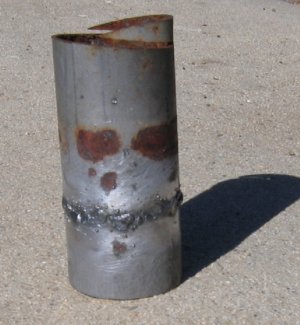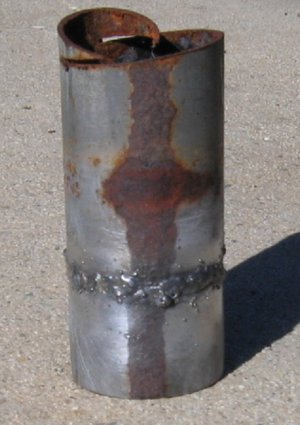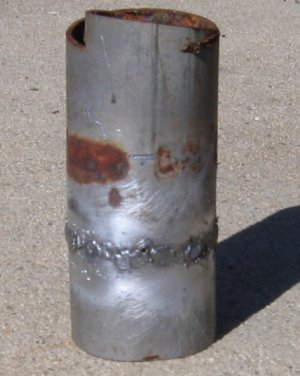- Joined
- Nov 14, 2016
- Messages
- 2,999
I mostly got my welder to do some body repair (rust) on an old Land Cruiser. I was given similar advice for welding sheet metal from my welding teacher as Brino gives. Short welds and then move to a different spot so it can cool. Basically a series of long tack welds.
He said he has also used a wet sponge to help the area around the weld cool faster. Not on the weld, but a few inches away where it won't contaminate the weld bead, or cause too rapid of cooling which can weaken the weld.
Aluminum also works as a good heat sink. Where I've had sheet laying on an aluminum plate, and then pass onto an area not in contact with the aluminum the difference is immediately apparent. Easy on sheet or flat parts, not so much with tubing, but maybe if you were able to make a collar that closed tight around the tubing that might help?
A less caustic way to remove the zinc coating than muriatic acid is soaking in white vinegar. It takes longer, perhaps overnight but it is safer to handle. The vinegar you buy in the cleaning aisle is more concentrated than the kind sold for cooking. You can buy industrial white vinegar as strong as 30%, cooking vinegar is usually around 5%, the % being how much acetic acid is in the solution.
He said he has also used a wet sponge to help the area around the weld cool faster. Not on the weld, but a few inches away where it won't contaminate the weld bead, or cause too rapid of cooling which can weaken the weld.
Aluminum also works as a good heat sink. Where I've had sheet laying on an aluminum plate, and then pass onto an area not in contact with the aluminum the difference is immediately apparent. Easy on sheet or flat parts, not so much with tubing, but maybe if you were able to make a collar that closed tight around the tubing that might help?
A less caustic way to remove the zinc coating than muriatic acid is soaking in white vinegar. It takes longer, perhaps overnight but it is safer to handle. The vinegar you buy in the cleaning aisle is more concentrated than the kind sold for cooking. You can buy industrial white vinegar as strong as 30%, cooking vinegar is usually around 5%, the % being how much acetic acid is in the solution.




